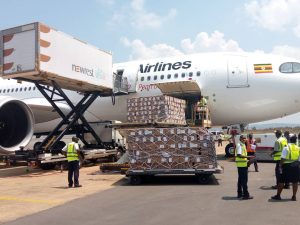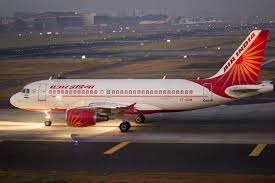DHL and New York University’s (NYU) Stern School of Business released the new DHL Global Connectedness 2024 to track how flows of trade, capital, information, and people move around the world and measures the globalization of 181 countries and territories. The report reveals that globalization reached a record high in 2022 and remained close to that level in 2023 – despite a series of global shocks over the past decade, including the Covid-19 pandemic, wars in Ukraine and Gaza, the U.S. – China trade conflict, and the UK’s withdrawal from the EU. The evidence strongly rebuts the notion that the growth of global flows has gone into reverse. Trade growth played a crucial role in boosting global connectedness. The share of global output traded internationally was back to a record high level in 2022. After a slowdown in 2023, trade growth is forecast to accelerate in 2024. The globalization of information flows has been especially strong over the past two decades, even though the latest data show a stall in their growth, partly due to less research collaboration between the U.S. and China. Corporate globalization is rising, with companies expanding their international presence and earning more sales abroad. John Pearson, CEO DHL Express, said: “The most recent findings of the DHL Global Connectedness Report unequivocally dispel the notion of globalization reversing course. Far from being a mere buzzword, globalization is an influential force that has profoundly reshaped our world and has further great potential. Expanding markets and fostering opportunities empower individuals, businesses, and entire nations to flourish in unique ways. Embracing globalization allows us and our customers to forge a promising future, fostering an increasingly interconnected world, more prosperous for …
Read More »Lufthansa renews IATA’s CargoIS platform to enhance efficiency
The International Air Transport Association (IATA) has confirmed that Lufthansa Cargo has renewed its agreement to use the trade body’s CargoIS platform. The new deal extends a partnership between the two that dates back more than a decade. IATA’s CargoIS provides comprehensive market intelligence relating to the air cargo industry. The platform takes in a network of over 80,000 unique city-to-city trade lanes, offering stakeholders – including airlines, freight forwarders, airports and shippers – insights into market trends. CargoIS is designed to transform huge datasets into actionable insights, enabling users to navigate the complexities of the air cargo market efficiently, fostering competitive advantage and operational excellence. Ashwin Bhat, chief executive of Lufthansa Cargo, noted that the market intelligence CargoIS has provided the carrier with over the years has “played a key role in shaping our strategic planning and improving our operational efficiency”. He continued: “This extended collaboration not only helps us to refine our shipping strategies but also ensures our position at the forefront of the industry, guided by data-driven decision-making.” Willie Walsh, IATA’s director general and chief executive, said that the deal “highlights the value of IATA’s cargo data products and trust in our data intelligence solutions. “CargoIS helps our customers to make better strategic decisions. Continuing and expanding our partnership with Lufthansa Cargo underscores the importance of leveraging data-driven insights to enhance efficiency and sustainability in the air cargo industry.”
Read More »‘Surge in pharma, e-com driving real-time shipment tracking demand’
The growth in the transport of pharma by air and the rapid rise in e-commerce, has led to an increase in demand for real-time shipment tracking, says Brendan Sullivan, Global Head – Cargo at IATA at the ongoing World Cargo Symposium 2024 in Hong Kong. He adds, “Shippers, cargo handlers and stakeholders want to know the procedures and requirements for the approval and use of tracking devices and data loggers. The updated IATA Interactive Cargo Guidance provides a common framework so that tracking devices can monitor the quality and accuracy of conditions of time and temperature sensitive goods. While the journey towards digitalization is not without challenges, our call to action is clear; Governments must consistently implement global standards; Supply chain partners need to collaborate to overcome shared challenges; And the entire industry must align to ensure a unified and effective approach to digitalization. To spearhead this alignment, IATA has introduced the Digitalization Charter to help the value chain give additional focus to this all-important areas. By adhering to the Charter’s principles—such as adopting industry-wide standards, championing sustainability, guaranteeing ethical technology use, and upholding digital leadership—the charter benchmarks excellence, security, and sustainability within the digital domain. I am delighted to announce Cathay Cargo, Champ Cargosystems, Global Logistics System (HK) Company Limited (GLSHK), IAG Cargo, IBS Software, LATAM Cargo and Lufthansa Cargo as the first signatories of the charter.”
Read More »FFFAI ties up with IIM, IIFT to launch courses on logistics & shipping
The Federation of Freight Forwarders Associations in India (FFFAI) has tied up with Indian Institute of Management (IIM) Mumbai and Indian Institute of Foreign Trade (IIFT) Kolkata to launch courses on Shipping & Logistics through collaboration between FFFAI’s training arm Indian Institute of Freight Forwarders (IIFF). It is pertinent to mention that IIM Mumbai previously recognized as the National Institute of Industrial Engineering, Mumbai (NITIE Mumbai), is a graduate business school under the Ministry of Education (India), Government of India located in Powai in Mumbai, and is ranked 7th among B-Schools of India. The Indian Institute of Foreign Trade was established as a Centre of Excellence in International Trade & Business, Education and Research in 1963. It is an autonomous educational institute under the Ministry of Commerce and Industry. It was granted “Deemed to be University” status in 2002. “We are thrilled to unveil a game-changing opportunity that’s set to transform your career in Shipping, Logistics, and Supply Chain Management! FFFAI, with its well-established training arm IIFF and in collaboration with IIM Mumbai & IIFT, Kolkata to launch the Certificate Course in Shipping, Logistics and Supply Chain Management on April 13, 2024, and April 15, 2024, respectively,” informed Dr. Nirav Thakker, Hon. Secretary, IIFF. The PG Diploma Certificate on Shipping, Logistics and Supply Chain Management course will be validated by IIM, Mumbai. “It will be a huge opportunity for FFFAI members as well as all aspirants from the Logistic industry to avail the benefits of this course across the country thanks to the online facility,” he added.
Read More »Kale joins AAPA to solidify its position in American maritime arena
Kale Info Solutions (Kale) has joined the American Association of Port Authorities (AAPA), marking a significant step forward for Kale in solidifying its position within the American maritime arena. With its extensive expertise in community platforms and enterprise solutions for ports, Kale will continue to empower the maritime community to optimise operations, through streamlining workflows, addressing congestion, dwell time, and documentation challenges, and providing technology that promotes paperless trade facilitation. “Becoming a member of the American Association of Port Authorities underscores our commitment to delivering cutting-edge solutions tailored to the unique needs of the port industry. By joining forces with AAPA, we aim to contribute to the advancement of port excellence and drive digital, sustainable growth across the Americas,” said Amar More, President, Kale. “Kale aims to leverage its expertise to support AAPA’s mission of promoting port development, environmental sustainability, and economic prosperity.” The AAPA is a leading organisation representing the collective interests of ports throughout the Americas. With a rich history of advocacy and collaboration, AAPA serves as a vital platform for industry stakeholders to drive innovation, share best practice, and shape policies that enhance port efficiency and competitiveness on a global scale. “Most major U.S. ports currently trail global counterparts in digital optimisation – however, ongoing supply chain disruptions from COVID-19, trade tensions, and geopolitical challenges are compelling U.S. ports to enhance efficiency,” said More. “Embracing digital technology is imperative to navigating these complex dynamics and ensuring smoother operations in the future.” Kale offers the world’s pioneering SaaS-based Port Community System (PCS), fully compliant with the International Maritime Organisation’s (IMO) Maritime Single Window. This system facilitates the electronic exchange of information and documentation among maritime and port stakeholders …
Read More »Strong air cargo demand in Jan & Feb: WorldACD
The strong demand growth levels recorded over the first two months of the year are evidence of an improvement in air cargo demand after a weak 2023. Data analyst WorldACD said that it is hard to gain a true understanding of demand trends by looking at January and February individually due to the changing timing of the Lunar New Year – this year the two-week holiday was in February and in 2023 it took place in January. However, statistics for the first two months combined show a 13% year-on-year increase in cargo demand (or 11% if the extra leap year day is stripped out of the figures). WorldACD said that demand in January was up 17% year on year and February was ahead by 8% (4% with the extra day removed). “Worldwide air cargo demand was up by 13% in the first two months of this year, compared with the equivalent period last year, with demand continuing to surge from Middle East & South Asia (MESA) origins, and tonnages recovering from the normal Lunar New Year (LNY) seasonal dip,” WorldACD said in its latest market summary.
Read More »GE Aerospace, Air India partner for flight ops software
GE Aerospace announced flight operations software contract with Air India. This strategic collaboration marks a significant milestone as Air India becomes the first enterprise in India to adopt GE’s FlightPulse® pilot app together with Safety and Fuel Insight for its entire group. With Safety Insight, Air India will have access to advanced analytics and real-time data monitoring to enhance safety measures and ensure optimal performance across its fleet. Fuel Insight will provide the enterprise with comprehensive fuel efficiency solutions, enabling the group to optimize journeys for more efficient fuel management. The FlightPulse® pilot app and its embedded Animation Module will drive engagement with more than 5000 of Air India’s flight crew by providing them with insights from personalized flight data, helping make informed operational decisions and taking an active role in driving Air India’s flight safety, training, and sustainability initiatives. “Air India group airlines are thrilled to collaborate with GE Aerospace and integrate their innovative solutions into our operations”, said Klaus Goersch, Executive Vice President & Chief Operations Officer, Air India. “The future looks bright as we work hand in hand to shape the future of Air India and set new standards for excellence and efficiency.” “We are elated to embark on this journey with Air India, a true trailblazer in the aviation industry,” said Andrew Coleman, General Manager, GE Aerospace, Software. “This partnership signifies a shared commitment to innovation, safety, and operational excellence.” As a digitally-led global airline under the Tata Group and Singapore Airlines, Air India is poised to drive substantial changes in its operational landscape. GE Aerospace’s software solutions will further enable the enterprise to cement best practices in flight safety and transform its fuel efficiency program …
Read More »Teleport offers direct data connection for eBookings in CargoWise
WiseTech Global announced that Teleport, which operates the largest air logistics network within Southeast Asia, has joined the CargoWise Carrier Connectivity Program. The integration of Teleport into the program will enable freight forwarders to access Teleport’s network and efficiently plan, book, confirm and manage shipments in real-time from within CargoWise, the industry’s leading logistics execution platform. Malaysia-based Teleport is Southeast Asia’s leading air logistics provider. It leverages the region’s most extensive air logistics network offering exclusive access to AirAsia’s extensive passenger flight belly network, alongside its freighter capacity and a vast network of third-party airlines, facilitating access to various parts of Asia, including connections into Europe, the Middle East, and the US. Teleport’s domestic and international air logistics network spans85 cities in Southeast Asia and 160 cities across the Asia Pacific region. The direct data connection with Teleport Cargo enables CargoWise customers, which include 24 of the 25 largest global freight forwarders worldwide[1], to access Teleport’s schedules, capacity and bookings as well as the ability to easily change digital bookings, without leaving CargoWise. Stuart Hayman, Head of Carrier Integration, WiseTech Global, said: “Asia Pacific represents the largest share of the world air cargo market[2]. Now the many freight forwarders who use CargoWise can easily book and manage shipments with Teleport without leaving CargoWise. The API integration provides Teleport’s customers with real-time communication directly within CargoWise, from research and booking through to final execution and digital transmission of the Master Air Waybill. All with the flexibility to modify bookings as needed. Reducing manual processes vastly improves data integrity and increases operational efficiency, all of which lead to greater scalability as a key enabler of Teleport’s growth strategies.”
Read More »ACAAI & IOFFLAT discuss plans to explore biz potential in India
C K Govil, President and Praveen Menon, Honorary Treasurer, Air Cargo Agents Association of India (ACAAI) held a meeting recently with Jason Kuo, Executive Director of the International Ocean Freight Forwarders and Logistics Association of Taiwan (IOFFLAT) to discuss the expanding synergy between India and Taiwan. “India is growing as a potential market and investment destination and Taiwan is also looking to tap the potential and explore the business opportunities here,” said President.
Read More »FFFAI’s 4th EC focused on undue practices in Customs affecting trade
The Federation of Freight Forwarders’ Associations in India (FFFAI) held its fourth Executive Committee (EC) Meeting in Mumbai to sensitize the FFFAI members regarding undue practices of authorities concerned as regards to Customs Brokers’ plights of being penalized for a matter without any involvement and responsibilities for the same. The session titled ‘Who will police the police’ was conducted by Sujay Kantawala, who is an eminent lawyer. Welcoming the Special Guest Speaker Sujay Kantawala, Dushyant Mulani, Chairman, FFFAI pondered on the importance of the subject of this session. He pointed out that the CB community often faces undue penalties imposed on them, Show Cause Notices are being issued, harassment and treated on par with exporters or importers for any mistakes done by their customers (importers or exporters). Kantawala, focused on Customs related issues and especially on misinterpretations of the CBLR/Customs Act by many Customs Officers. He raised the serious concern of accountability of Customs Officers. According to him, Citizen Charters displayed in Customs Offices do not make any sense in view of the ground reality. For example, after five years a CB is not required to maintain any records. However, he still receives Show Cause Notices (SCN) for the same. He also underscored many instances of serving SCNs to CBs for which he was not even remotely involved. He also stated that responsibilities on issues/disputes arising out of self-assessment are equal concerning involvement of a shipper and proper officer who is the final verifying authority on this matter. In his opinion, many times Customs Officers fail to adhere to the Guidelines issued by the CBIC. CBs should not be penalized for any error in this regard. Similarly, concerned Officers should …
Read More » Cargo Breaking News
Cargo Breaking News








